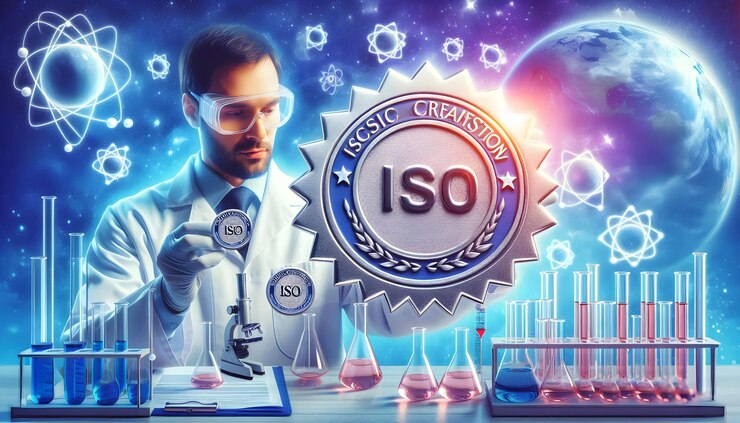Introduction
In today’s competitive and quality-conscious environment, laboratories play a critical role in industries such as healthcare, manufacturing, food processing, environmental monitoring, and research. The accuracy and reliability of laboratory test results directly impact decisions related to product safety, public health, compliance, and business success. To ensure that laboratories consistently produce valid results, international standards have been developed—foremost among them is ISO/IEC 17025, the cornerstone of ISO laboratory accreditation.
This article explores what ISO laboratory accreditation is, why it is important, the accreditation process, and the benefits it offers to both laboratories and their clients.
What is ISO Laboratory Accreditation?
ISO laboratory accreditation refers to the process through which a laboratory is formally recognized for its technical competence and quality management system in accordance with ISO/IEC 17025. This standard is developed by the International Organization for Standardization (ISO) in collaboration with the International Electrotechnical Commission (IEC).
ISO/IEC 17025 specifies the general requirements for the competence of testing and calibration laboratories. Laboratories that achieve accreditation under this standard demonstrate that they have:
- A sound quality management system
- Technically competent staff
- Reliable testing and calibration methods
- Equipment that is regularly maintained and calibrated
- Procedures to produce valid and traceable results
Key Components of ISO/IEC 17025
ISO/IEC 17025 is built on two main pillars:
- Management Requirements
These include organizational structure, document control, control of records, customer communication, and continual improvement. - Technical Requirements
These focus on staff competence, equipment calibration, testing methods, sample handling, measurement traceability, and result reporting.
By fulfilling both sets of requirements, a laboratory assures that it not only has the technical skills but also the system in place to consistently produce accurate results.
Why is ISO Accreditation Important?
- Assures Quality and Reliability
Accredited labs follow standardized procedures, ensuring high-quality testing and calibration that clients can trust. - Global Recognition
ISO/IEC 17025 is internationally recognized. Accreditation allows laboratories to gain credibility and acceptability across borders, reducing the need for retesting or duplicate assessments. - Regulatory Compliance
In many industries, accreditation is a legal or contractual requirement. For example, in pharmaceuticals and food safety, test results from non-accredited labs may not be accepted by authorities. - Customer Confidence
Clients, regulators, and stakeholders feel more confident when dealing with ISO-accredited labs, as it minimizes the risk of errors and misjudgments. - Operational Efficiency
Accredited labs operate under well-defined processes, which improves efficiency, reduces rework, and increases overall productivity.
Steps in the ISO Laboratory Accreditation Process
- Gap Analysis & Preparation
The laboratory reviews current practices against ISO/IEC 17025 requirements and identifies areas of improvement. Training may be provided to staff to align with standards. - Implementation of Quality System
The lab implements a comprehensive quality management system including standard operating procedures (SOPs), equipment calibration records, personnel training records, and internal audits. - Application to Accreditation Body
The lab submits its application to a national or international accreditation body, such as NABL (India), UKAS (UK), A2LA (USA), or DAkkS (Germany). - On-site Assessment
The accreditation body sends assessors to evaluate the lab’s compliance. This includes checking technical procedures, reviewing documentation, and interviewing staff. - Corrective Actions
If non-conformities are found, the lab is required to take corrective action and submit evidence of compliance. - Granting of Accreditation
Once the lab meets all criteria, the accreditation body issues an accreditation certificate, typically valid for a period of 3 years, subject to surveillance audits. - Ongoing Compliance & Reassessment
Accredited labs must continuously comply with the standard and undergo periodic surveillance and reassessment to maintain accreditation.
ISO/IEC 17025 vs ISO 9001
While both standards focus on quality, they serve different purposes:
- ISO 9001 focuses on general quality management systems applicable to any organization.
- ISO/IEC 17025 is specifically tailored for laboratories and includes both quality management and technical competence.
A laboratory accredited to ISO/IEC 17025 inherently meets most ISO 9001 requirements, but not vice versa.
Benefits of ISO Laboratory Accreditation
For Laboratories:
- Enhanced reputation and trustworthiness
- Increased marketability and client base
- Access to global markets and tender opportunities
- Streamlined processes and internal improvements
- Employee training and competence development
For Clients and Regulators:
- Greater confidence in test results
- Reduced risk in decision-making
- Assurance of compliance with legal and regulatory standards
- Elimination of redundant testing
Challenges in Achieving Accreditation
- Initial Cost: Implementing ISO/IEC 17025 can be expensive due to training, system setup, and equipment calibration.
- Documentation: Managing the volume of documentation and SOPs can be overwhelming.
- Staff Training: Continuous training is essential to maintain competence.
- Ongoing Monitoring: Labs must maintain strict discipline to sustain accreditation, including internal audits and updates.
However, these challenges are often outweighed by the long-term benefits in credibility, efficiency, and client satisfaction.
Conclusion
ISO laboratory accreditation is more than just a certification—it’s a mark of trust, precision, and professionalism. In a world where data accuracy is crucial to safety, compliance, and decision-making, laboratories must uphold the highest standards. By adopting ISO/IEC 17025, laboratories not only prove their competence but also align themselves with international best practices. For businesses, industries, and governments alike, choosing an accredited laboratory ensures confidence in every result, every time.


